
Good Reliability Testing
Abstract
Chris and Fred discuss the difference between good and poor reliability testing.
ᐅ Play Episode
Your Reliability Engineering Professional Development Site
by Christopher Jackson Leave a Comment

Chris and Fred discuss the difference between good and poor reliability testing.
ᐅ Play Episode
by Philip Sage Leave a Comment
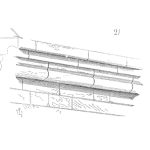
Philip and Fred discuss new shiny objects and why digital twins and IIOT will not solve your core problems.
High Precision Planning (HPP) supports High Precision Maintenance (HPM) which is a program running in elite industries today.
The emphasis on HPP is an absolute requirement to achieve HPM.
The benefits of achieving HPM have been demonstrated to be an improvement up to 250% in first-pass quality.
ᐅ Play Episode
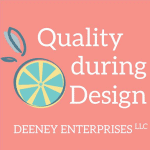
In today’s fast-paced and highly competitive environment, team meetings can often feel like a necessary evil. They can be messy, complicated, and sometimes a complete waste of time. However, in this episode, we reveal how to turn these often-chaotic gatherings into cohesive, productive, and efficient sessions.
One of the primary focuses of this episode is the application of Six Sigma, continuous improvement, product development, and project management strategies to team meetings. The podcast discusses how successful facilitators utilize similar techniques to transform the way ideas are generated, examined, and prioritized. By breaking down the process into discovery, examination, and prioritization phases, team meetings can become a fertile ground for creativity and actionable decisions.
In addition to these methodologies, the podcast provides real-life scenarios to illustrate how these techniques can be applied. For instance, it discusses how to break down an FMEA into manageable parts and conduct separate meetings for each part. This ensures that each aspect of the FMEA is thoroughly examined and that the team can focus on specific issues without being overwhelmed by the entire process.
Overall, this podcast episode provides a comprehensive guide on how to transform team meetings. By focusing on discovery, examination, and prioritization, and utilizing tools like affinity diagrams, tree diagrams, and fishbone diagrams, teams can ensure that their meetings are productive, collaborative, and efficient. The episode also emphasizes the importance of staying organized and breaking down complex issues into manageable parts, ensuring that every team member’s input is valued and that actionable decisions are made.
by Fred Schenkelberg Leave a Comment
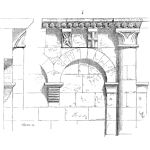
Pareto Analysis is a simple yet powerful tool that provides a visual way to help focus on the most critical tasks. The idea that 80% of your field failures come from 20% of the failure mechanisms is one way we can focus on the vital few instead of the insignificant many.
Let’s explore the basics of conducting Pareto Analysis, plus a few different ways to create and modify the plots. Of course, we’ll talk about some potential problems and pitfalls to avoid.
Bring your questions and success/failure stories using this tool. There should be plenty of time for a discussion.
by Mike Konrad Leave a Comment
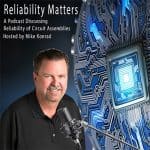
Recorded live in Anaheim California during the IPC Apex Expo.
This episode features four interviews including:
• David Chiu from Test Research, Inc.
• Michael Dolan from South-Tek
• Dalton Dodge from Brooks Automation
• Michelle Ogihara from Seka Machinery, Inc.
by Philip Sage Leave a Comment

Philip and Fred discuss the important differences between Asset Management “Systems” and “Asset Performance”. Philip has been teaching at the university level for over 10 years as an industry expert and has concluded that adherence to Asset Management System and certification does not equate into great asset performance. There is a very big disconnect between the asset performance of those organizations who are actually certified in asset management systems like ISO 55000. If you have a good Asset management “System” in the industry today it does not guarantee that you will have great “Asset Performance”.
Why ISO “management systems” like ISO 9000 and ISO 55000 and ISO 14000 are not well suited to produce top “Asset Performance”.
ISO is after all – a self-confession – “say what you do – then back it up with documentation to prove you do what you say!”
Why is poor asset performance possible form certified organizations? Why is top performance in an industry occuring where organizations are not certified to ISO 55000? Why do digital twins fail to deliver?
Remember – “the pursuit of Performance is the only thing that makes you Excellent!”.
ᐅ Play Episode
by Carl S. Carlson Leave a Comment

Carl and Fred discuss a listener question on FMEA, about reducing the severity level through mitigation strategy. Specifically, can FMEA reduce the likelihood of the effect of failure?
ᐅ Play Episode
by Carl S. Carlson Leave a Comment
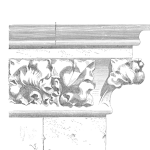
Carl and Fred discuss an interesting listener question. The listener’s management asked him to create an “eye-popping” chart that summarizes the results on an FMEA.
ᐅ Play Episode
by Greg Hutchins Leave a Comment

Greg and Fred discuss why today’s business model is often based on managing an organization’s brand and outsourcing design, reliability, and quality.
ᐅ Play Episode

I’m sure you’ve heard it before:
Quality is everyone’s responsibility.
You’ve also heard the terms “quality assurance” and “quality control”. Have you heard of “quality assistance” or “Quality 4.0?
What’s the difference between all of these terms, especially with quality assurance and quality control, the two oldest terms in the list?
As a designer, how are you supposed to interact with these terms? If quality is everyone’s responsibility, then what are yousupposed to do for quality assurance and quality control? Are there different ways you’re supporting each of these ideas inhow you design?
How does quality assistance and Quality 4.0 fit into the design picture?
Let’s explore some official definitions, the changes in quality that led to the quality assistance and Quality 4.0 terms and givesome context of quality with respect to design.
by Christopher Jackson Leave a Comment

We often use probability distributions to help us characterize the likely values a random variable will have. This includes the random variable we call ‘time to failure’ or TTF, which is how long something works before it fails. Failure is a random process, but just because it is random, doesn’t mean it’s unpredictable. Products that wear-in will have vastly different probability distributions for TTF when compare do products that wear-out. So you need to have a good idea of the probability distribution of the TTF of your product when it comes to reliability engineering. But we often see in textbooks and standards the ‘exponential distribution’ simply being assumed as a ‘good’ TTF probability distribution. But is it? And what happens when it isn’t … but you use it anyway? Join this webinar to find out!
[Read more…]
by Mike Konrad Leave a Comment

This episode features three interviews including:
• Gus Mavrou from Seho
• Mark Stansfield from Solderstar
• Jesper Lykke from Viscom
by Greg Hutchins Leave a Comment

Greg and Fred discuss work communications and job politics. Greg takes the management point of view. Fred advocates the individual contributor point of view.
ᐅ Play Episode
by Christopher Jackson Leave a Comment

Chris and Fred discuss the problems we experience when we are in an organization with very ‘short-term’ thinking. What can we do?
ᐅ Play Episode
by Wim Vancauwenberghe 1 Comment

A significant challenge addressed is managing water losses across a vast network of over 34,000 kilometers of main pipes. Through strategic data use and digital technology implementation, such as sensors and digital customer meters, leakages are detected and managed more efficiently. The episode also highlights the importance of engaging the workforce in the transformation process and emphasizes the significance of data reliability, effective communication, and storytelling in driving organizational change within the water sector.e
 Ask a question or send along a comment.
Please login to view and use the contact form.
Ask a question or send along a comment.
Please login to view and use the contact form.